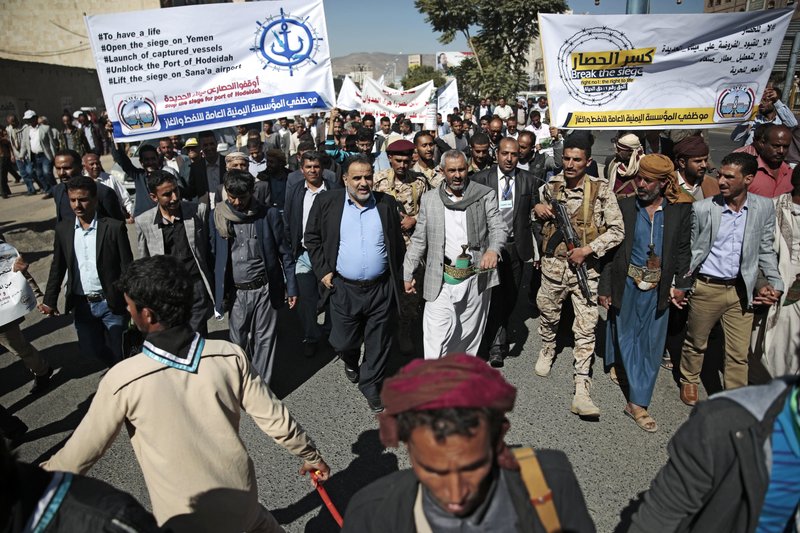UNITED NATIONS -- Twenty million people in war-torn Yemen are hungry -- 70 percent of the population, a 15 percent increase from last year -- and for the first time 250,000 are facing "catastrophe," the U.N. humanitarian chief said Monday.
Mark Lowcock, who recently returned from Yemen, told reporters there has been "a significant, dramatic deterioration" of the humanitarian situation in the country and "it's alarming."
He said that for the first time, 250,000 Yemenis are in Phase 5 on the global scale for classifying the severity and magnitude of food insecurity and malnutrition -- the severest level, defined as people facing "starvation, death and destitution."
Lowcock, the U.N. undersecretary-general for humanitarian affairs, said those 250,000 Yemenis facing "catastrophe" are overwhelmingly concentrated in four provinces "where the conflict is raging quite intensely" -- Taiz, Saada, Hajja and Hodeida.
The only other country where anyone is in Phase 5 is South Sudan, with 25,000 people affected, he added.
Lowcock said there are also nearly 5 million Yemenis in Phase 4, which is defined as the "emergency" level, in which people suffer from severe hunger and "very high acute malnutrition and excess mortality" or an extreme loss of income that will lead to severe food shortages. He said these people live in 152 of Yemen's 333 districts, a sharp increase from 107 districts last year.
Large numbers of people "have moved into a worse category of food insecurity" as a result of the war, Lowcock said.
The conflict in Yemen began with the 2014 takeover of the capital, Sanaa, by Iranian-backed Houthi rebels, who toppled the government of Abed Rabbo Mansour Hadi. A Saudi-led coalition allied with Yemen's internationally recognized government has been fighting the Houthis since 2015.
Saudi-led airstrikes have hit schools, hospitals and wedding parties and killed thousands of Yemeni civilians. The Houthis have fired long-range missiles into Saudi Arabia and targeted vessels in the Red Sea.
Civilians have borne the brunt of the conflict, which has killed over 10,000 people and created the world's worst humanitarian crisis.
"There's millions of Yemenis who are hungry and sick and scared and desperate and starving, but they've all got one message and their message is that they're at the end of their tether and they want this war to stop," Lowcock said.
He said "there are millions and millions of people whose plight would be much, much worse but for the ongoing relief operation," which is currently reaching 8 million Yemenis.
Lowcock said the U.N. plans to reach 15 million people next year and will be appealing for $4 billion -- compared to this year's $3 billion appeal and last year's $2 billion request.
He said Secretary-General Antonio Guterres will host a pledging conference with Sweden and Switzerland in Geneva on Feb. 26. And he welcomed a new $500 million pledge from Saudi Arabia and the United Arab Emirates, key coalition members, saying he understands "it will be largely in response to the 2019 appeal."
A Section on 12/11/2018
